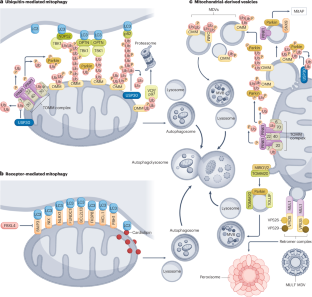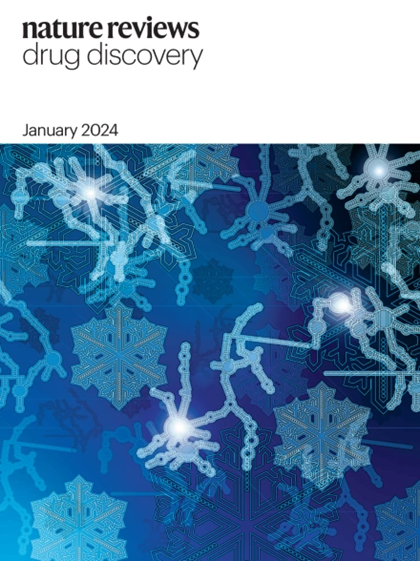Targeting mitophagy in neurodegenerative diseases
IF 122.7
1区 医学
Q1 BIOTECHNOLOGY & APPLIED MICROBIOLOGY
引用次数: 0
Abstract
Mitochondrial dysfunction is a hallmark of idiopathic neurodegenerative diseases, including Parkinson disease, amyotrophic lateral sclerosis, Alzheimer disease and Huntington disease. Familial forms of Parkinson disease and amyotrophic lateral sclerosis are often characterized by mutations in genes associated with mitophagy deficits. Therefore, enhancing the mitophagy pathway may represent a novel therapeutic approach to targeting an underlying pathogenic cause of neurodegenerative diseases, with the potential to deliver neuroprotection and disease modification, which is an important unmet need. Accumulating genetic, molecular and preclinical model-based evidence now supports targeting mitophagy in neurodegenerative diseases. Despite clinical development challenges, small-molecule-based approaches for selective mitophagy enhancement — namely, USP30 inhibitors and PINK1 activators — are entering phase I clinical trials for the first time. Impaired mitophagy leading to the accumulation of damaged mitochondria is associated with the onset and progression of neurodegenerative diseases. This Review provides an overview of the molecular pathways of mitophagy regulation in neurons, discusses evidence implicating mitophagy impairment in the pathogenesis of neurodegenerative diseases and assesses small-molecule-based therapeutic approaches aimed at selective mitophagy enhancement.


靶向线粒体自噬在神经退行性疾病中的应用
线粒体功能障碍是特发性神经退行性疾病的标志,包括帕金森病、肌萎缩性侧索硬化症、阿尔茨海默病和亨廷顿病。家族性帕金森病和肌萎缩侧索硬化症通常以与有丝分裂缺陷相关的基因突变为特征。因此,增强线粒体自噬通路可能是针对神经退行性疾病的潜在致病原因的一种新的治疗方法,具有提供神经保护和疾病修饰的潜力,这是一个重要的未满足的需求。积累的遗传、分子和基于临床前模型的证据现在支持靶向线粒体自噬治疗神经退行性疾病。尽管面临临床开发挑战,基于小分子的选择性线粒体自噬增强方法(即USP30抑制剂和PINK1激活剂)首次进入I期临床试验。
本文章由计算机程序翻译,如有差异,请以英文原文为准。
求助全文
约1分钟内获得全文
求助全文
来源期刊

Nature Reviews. Drug Discovery
医学-生物工程与应用微生物
CiteScore
137.40
自引率
0.30%
发文量
227
期刊介绍:
Nature Reviews Drug Discovery is a monthly journal aimed at everyone working in the drug discovery and development arena.
Each issue includes:
Highest-quality reviews and perspectives covering a broad scope.
News stories investigating the hottest topics in drug discovery.
Timely summaries of key primary research papers.
Concise updates on the latest advances in areas such as new drug approvals, patent law, and emerging industry trends and strategies.
 求助内容:
求助内容: 应助结果提醒方式:
应助结果提醒方式:


